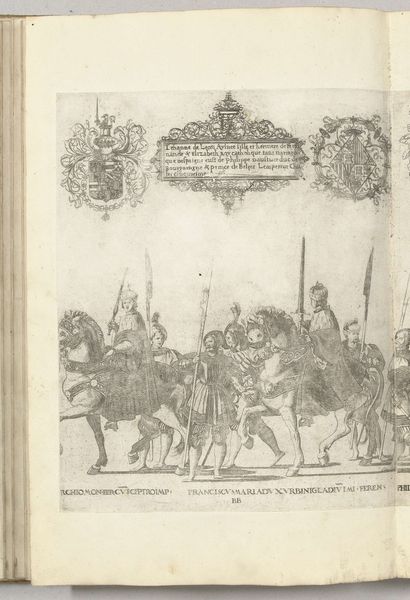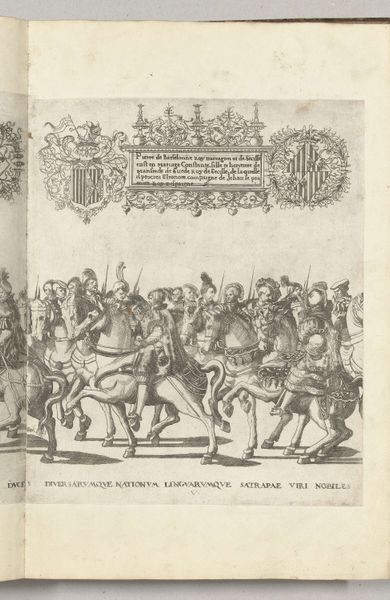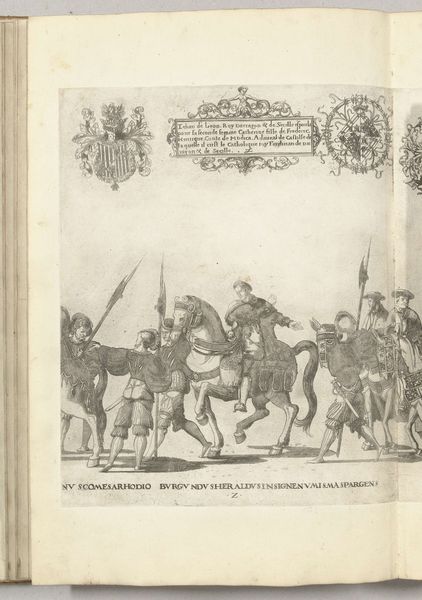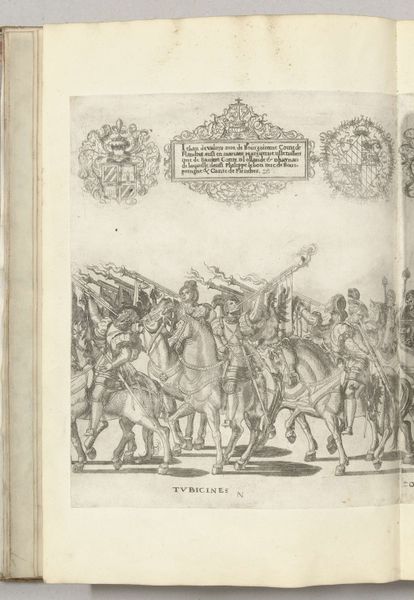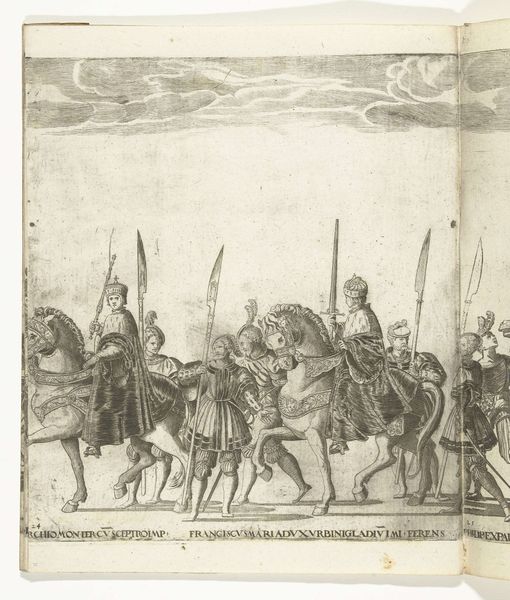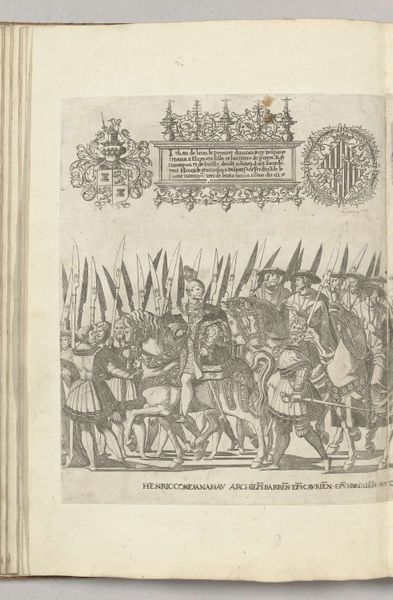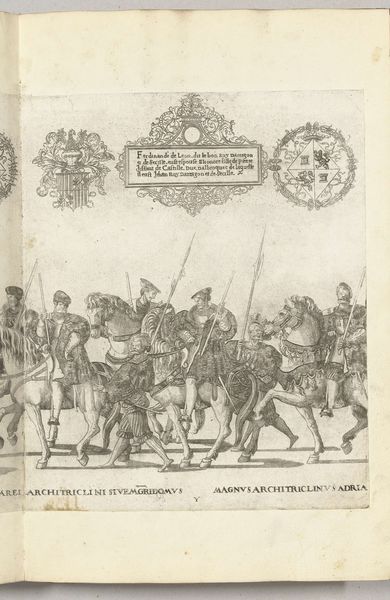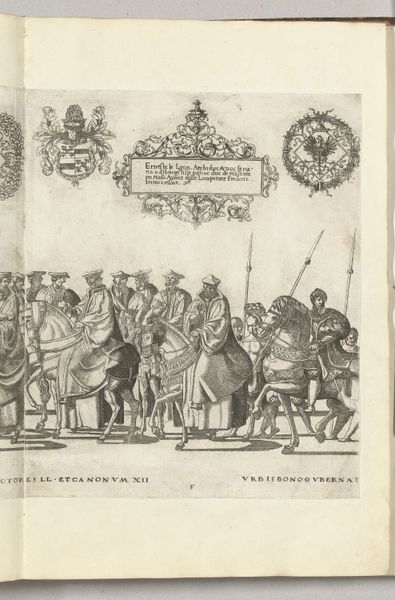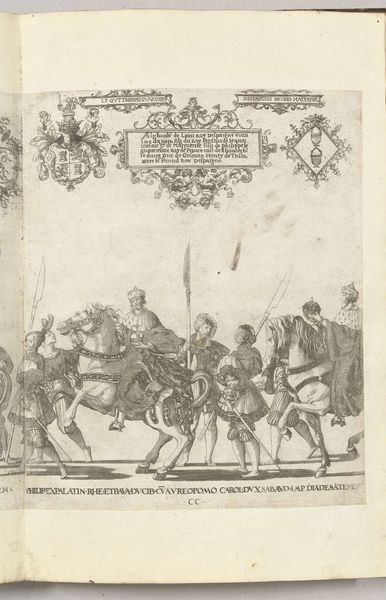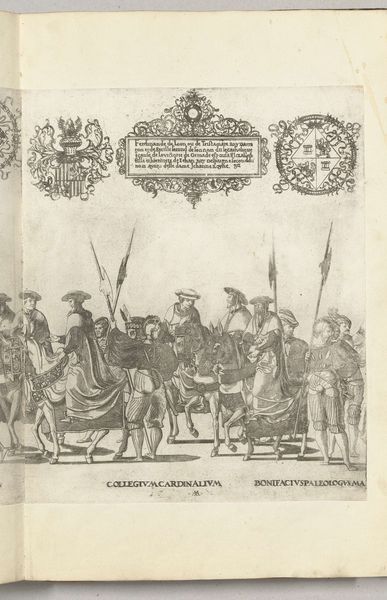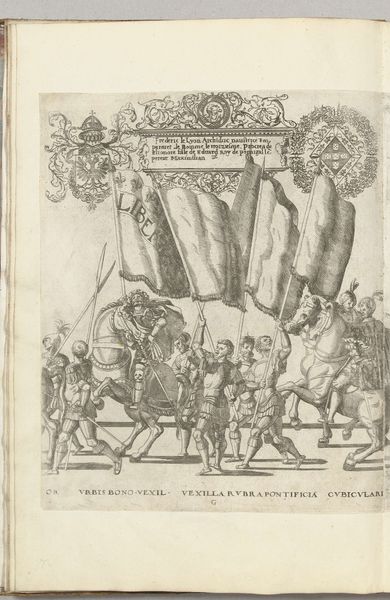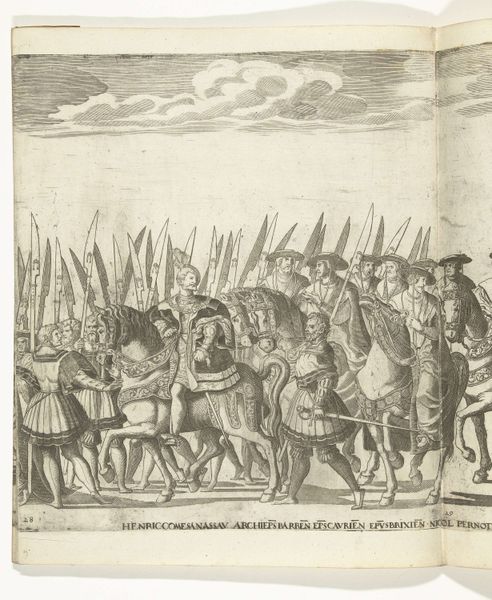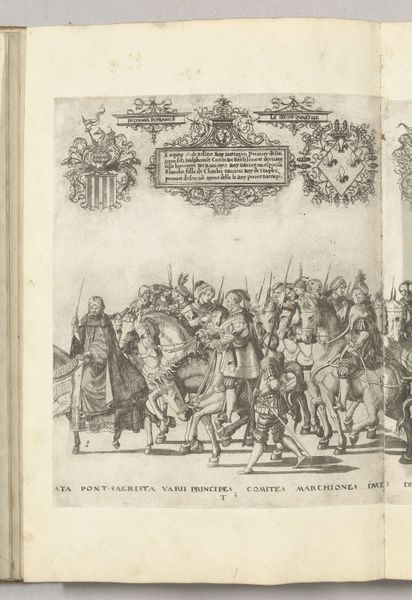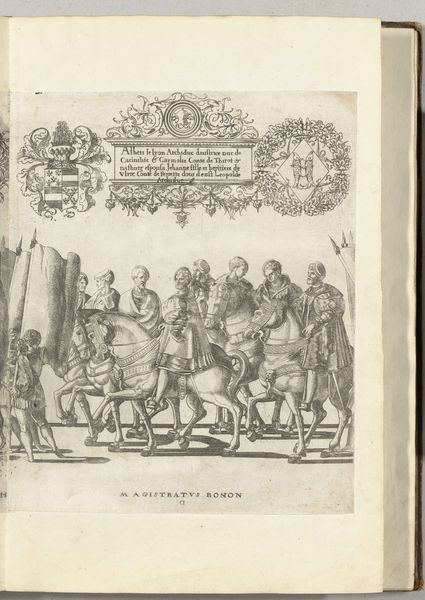![Keizerlijke garde, plaat [DD] by Nicolaas Hogenberg](/_next/image?url=https%3A%2F%2Fd2w8kbdekdi1gv.cloudfront.net%2FeyJidWNrZXQiOiAiYXJ0ZXJhLWltYWdlcy1idWNrZXQiLCAia2V5IjogImFydHdvcmtzL2FkMmE1ZTIzLWY0OWUtNDJmNC1iMWFhLTcyZWEzNWU2MWMyYS9hZDJhNWUyMy1mNDllLTQyZjQtYjFhYS03MmVhMzVlNjFjMmFfZnVsbC5qcGciLCAiZWRpdHMiOiB7InJlc2l6ZSI6IHsid2lkdGgiOiAxOTIwLCAiaGVpZ2h0IjogMTkyMCwgImZpdCI6ICJpbnNpZGUifX19&w=3840&q=75)
drawing, print, engraving
#
portrait
#
drawing
#
medieval
# print
#
figuration
#
line
#
history-painting
#
engraving
Dimensions: height 360 mm, width 295 mm
Copyright: Rijks Museum: Open Domain
Curator: Let's discuss Nicolaas Hogenberg’s engraving, "Keizerlijke garde, plaat [DD]" from the 1530s. The material conditions surrounding this work are fascinating. Editor: Indeed. It seems to capture the Imperial Guard, but it's interesting it's rendered as a print. How do you interpret the work? Curator: This print allows us to consider how images of power circulated in the 16th century. Engravings democratized visual representation; multiple copies could be produced and distributed. Who controlled the printing process, and for what purpose? The visual rhetoric serves those who commissioned or consumed the piece. It also provides insight into printmaking labor in Hogenberg's time. Editor: So you’re saying we need to look at it as a manufactured object designed to convey power to a wide audience, not simply as a document. I hadn't considered how much labor went into this image. Curator: Precisely. The sharp lines, precise details – all products of skill and effort. What were the working conditions like for engravers? What socioeconomic factors influenced their practice? Examining these elements challenges traditional notions about fine art. We also can wonder how its consumption patterns have changed. Editor: That’s a powerful perspective. Now I see this image not only for its subject, but for the conditions that allowed its production. The labor involved is more apparent. Curator: Exactly. Understanding art requires understanding its origins in social context. Editor: I will definitely keep the role of production and consumption in mind from now on. Curator: Excellent. That's the essence of a materialist approach.
Comments
No comments
Be the first to comment and join the conversation on the ultimate creative platform.
